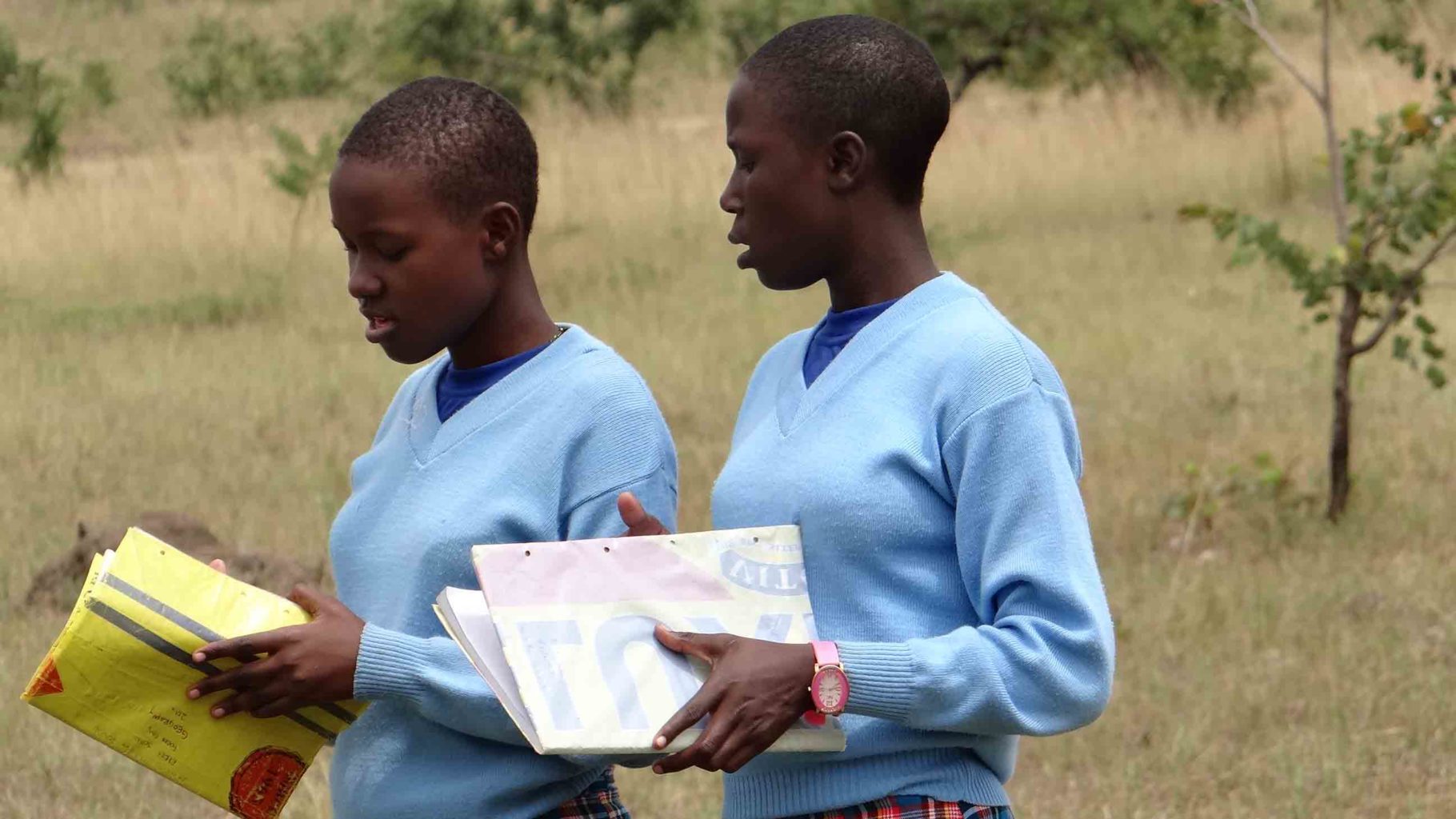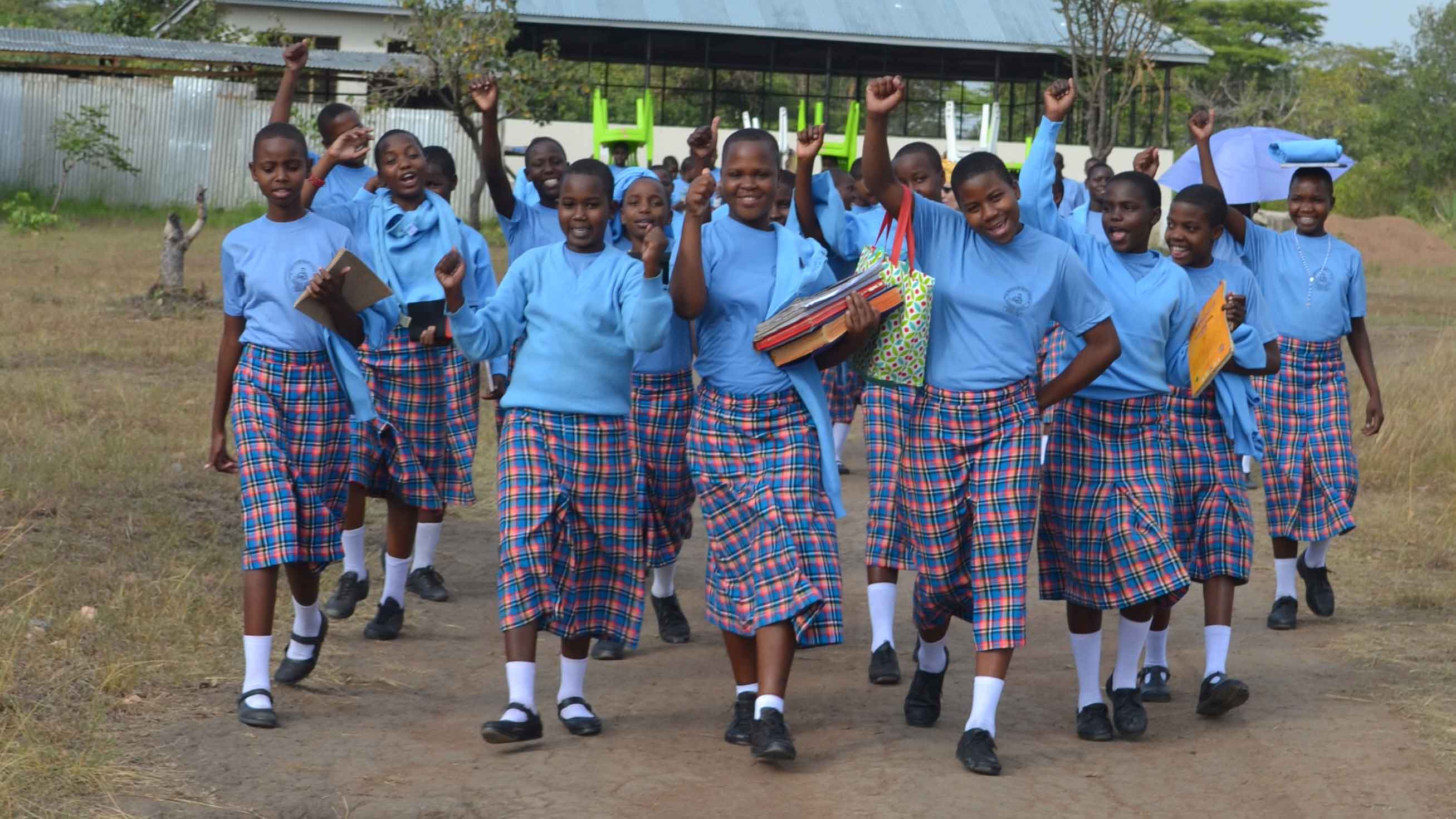By Kate Rogers
Today, in 2017, in rural areas of Tanzania, the unimaginable is happening. Young girls are being stripped of their right to an education, of the right to owning their bodies and their futures, in exchange for cows.
For most of us reading these words, education and choice are inalienable parts of life. We begin elementary school, boys and girls alike, move to middle, then high school, and many of us head toward higher education without a second thought. It’s our right as humans to choose how, where, when and by whom we want to be educated. Or is it?
In Kitenga, in the Mara province of Tanzania, education for everyone – specifically girls – is not always possible. Public schools often have upwards of 150 children per one singular teacher, sometimes no desks, few books. Boys and girls may begin primary school together, but by the time secondary school rolls around, the gender disparity is colossal. That’s because in Tanzania, girls of secondary education age are at the highest risk for genital mutilation (a tribal tradition still widely practiced in this region of Africa) and are being married off (often to much older men) in order to provide financial security for their families. In essence, 12-year-old girls are being traded their right to self-determination, to choice, for livestock.
The heaviness of this knowledge is staggering, and could easily render the best of us helpless in the face of it. Fortunately, the Buffalo-based Girls Education Collaborative has risen to meet this challenge and is making groundbreaking strides to create educational opportunities for girls in developing countries. Anne Wadsworth, Executive Director of Girls Education Collaborative (GEC), is a woman who doesn’t do anything halfway. I meet her on a sunny morning and as she sets down her coffee to begin our interview, she quickly checks her phone then switches it to silent. She explains to me that it’s “Malala Week” and things are a little hectic right now – then gives our interview her full, undivided attention.
The “Malala” she’s referring to is Malala Yousafzai who survived an assassination attempt in her native Pakistan when she was 15 years old – the Taliban shot her in the head on her way home from school. Malala was not silenced. Now 20 years old, she is a Nobel Laureate and global advocate for women the world over who need a voice but do not have one. GEC seeks to one day serve and bring opportunity to each and every one of the women Malala advocates for. “Let’s start there,” I say. “Tell me what GEC is doing to give voice to those who need it most.” Anne’s face lights up, and she starts at the beginning.
Spawned from a university-community initiative at UB called the Buffalo Tanzania Education Project, GEC began as a thinking group, collecting data and observing the situation surrounding girls’ education in impoverished, rural east Africa. They learned that despite the compelling information on the impact of educating girls (for instance, girls’ education is identified as critical to changing the pace of climate change, the most effective approach in eradicating global poverty), few organizations were working with local communities to support that education. GEC recognized the importance of connecting resources and expertise to communities that don’t otherwise have access to them, and to working within an established network that already has people on the ground. So they created a mission designed to forge partnerships with education-centered, community-driven initiatives that improve opportunities for girls.

GEC’s first project, its proof of concept, is the Kitenga Village Project, a collaboration with a faith-based group in Tanzania known as the Immaculate Heart Sisters of Africa (IHSA). These sisters have enormous hearts and a proven track record of advocating for the marginalized, particularly women and girls. GEC listened to what the sisters told them – that girls in their region were being genitally mutilated, married off and not allowed access to an education once they’d given birth – and joined hands with the Sisters so that their vision for a residential school for girls could be realized. GEC secured funding and oversaw the construction of key infrastructure required for the Kitenga School for Girls to launch a science center and library. They built a road to campus, because in the midst of construction, everyone realized that access to the school was gravely impaired by lack of any kind of road. Now the entire community – not just the school – can travel easily to markets, clinics and the outside world. They also helped build a dormitory, because living on campus is essential to fully meet the needs of these girls.
What makes GEC so unique is its understanding that education takes many forms. When a girl at Kitenga School looks at Anne and tells her seriously that she wants to cure HIV/AIDS, Anne knows she means it – and that GEC has the heavy responsibility to ensure they give her the tools to follow through on that promise. Those tools include education as vocational training, sexual health, financial literacy – tools that give every girl the opportunity to choose her own path.
At this point, a bee buzzes lazily around Anne’s face. She waves it away, and it zigzags back towards her. She stands up, “Come on buddy, let’s follow me outside,” and walks out the door, followed by the bee. She comes back inside, laughing lightly. “You learn a lot of tricks like that in Africa.” I ask her what other challenges she’s come across working in Africa, besides insects, and she turns serious again. “Working across great distances and different cultures can be really challenging, for both sides. Learning, building and [establishing] trust can take a long time,” she says. “But when that mutual trust and understanding can be built, mountains can be moved, dreams for a community realized.”
GEC’s work is taking hold, slowly but surely. There are new edicts in Tanzania against child marriages, and authorities are working to bring perpetrators of these practices to justice. There are two men on the faculty at Kitenga School for Girls who strongly believe that women are the agents of social change; one them actually comes from a tribe that practices FGM and early marriage. He knows his tribe’s destructive cultural traditions must be abandoned. GEC is committed to this project in Kitenga for as long as it takes to get the school robust enough to keep humming on its own, while looking toward the next community that needs its attention. With their holistic approach the next project could, and most likely will, look very different from the first.

“East Africa makes the most sense [right now],” Anne explains. But she would take this mission anywhere. “[I] stepped into it when I learned what a huge human rights issue [girls’ education] was, and that these girls had few shoulders to stand on. To be able to help pivot lives so completely, so dramatically – it doesn’t take a ton of resources, but it takes something… and, ultimately, it’s what’s going to break the chains of generational poverty [and] stabilize communities.”
Her face is somber as she says this, and I ask her to tell me the very best part about this work that she does. Her eyes shift far away, and I know she’s back in Kitenga with the girls who call her Bibi Harry (“Harry’s grandmother”). She tells me that as she grows to know these girls and learn what their dreams and goals are, she also begins to understand why they have the fierce aspirations that they do. These girls are overcoming unspeakable odds to be where they are – in classrooms, playing soccer, reading textbooks – and they want to protect and preserve those same rights for all the girls who come after them. Anne’s eyes come back into focus, and she smiles at me. “There is nothing a girl can’t do.”





